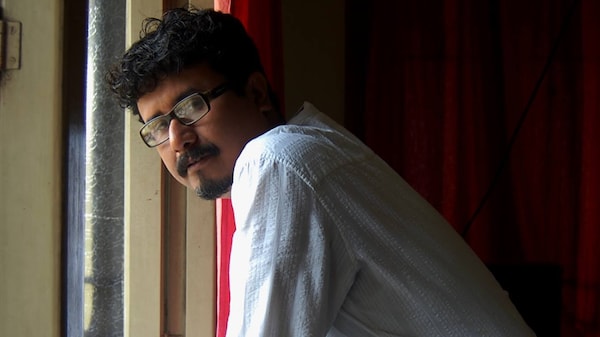Exclusive! Indranil Roychowdhury on Mayar Jonjal: Ritwick, Chandreyee, and others have delivered a world-class performance
Before its release, the director talks to OTTplay about the film, his journey with the actors, and the importance of independent films.

Last Updated: 07.53 PM, Feb 20, 2023
When Indranil Roychowdhury’s Phoring was released in 2013, it was critically acclaimed. However, the film did not get to run on theatres for more than a few days. After that, he made a short film Bhalobashar Shohor with Ritwick Chakraborty and Jaya Ahsan. In 2020, he shot the film Mayar Jonjal with Ritwick, Chandreyee Ghosh, Aupee Karim, Bratya Basu, Paran Bandyopadhyay, Shohel Mondal, and others. Based on two stories of Manik Bandyopadhyay, the film talks about hope buried in desolation in a world that is often unkind. The release of the film was postponed due to the pandemic. However, the film had its festival run during that period and received global laurels. Finally, the film will hit the theatre on February 24. Before its release, the director talks to OTTplay about the film, his journey with the actors, and the lacuna in the importance of independent films. Read on…
You worked and shot Maayar Jonjal years ago. What made it so long to release the film? Will the film still be relevant after so many years?
We shot the film in 2020. After the pandemic hit us, everything came to standstill. There was a lockdown. Even after the lockdown was revoked, cinema halls were not opening at their full strength. We were told to wait so that the film does not get lost in the maze of many other films. I feel it was the right decision. The film is a bit more relevant today, in the pandemic-affected world, than before. The film talks about working-class people losing their jobs. It gives a sense of helplessness among the common people. The pressure of a crumbling economy was there even before the pandemic when the film was shot. However, that crisis became far more real and closer to us after the pandemic when job losses became far more real thing for ordinary people. The desolation, personal loss, depression – everything went up manifold after the pandemic. Earlier, there was no real trigger for the hopeless situation. The indications were there subtly. Mayar Jonjal magically found the right time when there is a real trigger. People are impatient and cornered. They can factually correlate with the crisis and emotion they will get to see on the screen. I think the film has become way more relatable today than before.
Tell us about the inception of Mayar Jonjal…
It started with one story of Manik Bandyopadhyay and then I found that one story is not creatively liberating enough. Then came another story and as the two tales crisscrossed and brushed along with each other, it became more interesting. Manik’s stories are from the time of the Partition. Those came out of a certain desolation and hopelessness. It was amazing to see how the post Partition tales coincided with the post-pandemic stories. The emotional crisis that Manik captured 70 years ago remained so relevant even today.
Having said that, talking about depression and capturing that in films has become a fad. I would like to stay away from that fashion. This is not a story of lament. It is a story of the possibility of love, understanding, and hope. The hope is not in your face but is buried somewhere within the premise of the story.
When you were trying to releaser Phoring, you went through a lot of ordeals. It was pulled down within a couple of days of its release. Has anything changed since then?
I would think good and bad. The distribution and exhibition space is not unipolar anymore, so there is less monopolisation. That is not there anymore. As a result, many films that do not have stars worked.
The difficult bit is, however, that the spending capacity of people has gone down. Also, there is an OTT dependency that insists people watch it in the comfort of their homes.
Also, the distribution chain here has never been favourable towards independent films. There is an audience for Mayar Jonjal that would love to watch it. It is a relatable story of people we know. Ordinary people will identify. There are layers in Mayar Jonjal that people are not alien with. Common people are used to watching layered content on OTT platforms. But the distribution system does not favour independent films.
On the other hand, I firmly believe that the breakthrough in Bengali cinema will come through independent films, even in the commercial space. The days of factory-produced commercial films are gone. Movies that come from boutique studios can be unexpected and strike a chord with the audience. This has happened in Kerala, Maharashtra, and other places. This is not an alien concept.

This distribution and exhibition chain came under wide criticism after several Bengali films were pulled down as Shah Rukh Khan’s Pathaan was released. What’s your take?
There is no standard operating procedure here and as a result, big fish eat small fish. Language is not a factor here. Big films, irrespective of language, throw out small fish. It will take a lot of participation to standardise the existing unorganised space. I’ll give you an example. There is a federation that has a set of rules – you will need to take a stipulated number of technicians to make a film. That number is the same for a big-budget film and an independent film. Perhaps one doesn’t need that large a crew for the film and yet you are forced to hire them. That is why the entire system needs to be rationalised.
Lastly, Mayar Jonjal is a multistarrer film where actors from India and Bangladesh took part in the process of rehearsals, shooting, and dubbing. How was your experience?
Since it is an Indo-Bangladesh joint venture, it involved a lot of paperwork and permission. Once that was done, everything went smoothly. While most of them are stars, they are essentially actors and hence, they did not have any star tantrums. They are cooperative and caring in nature and hence the job was smooth.
I would like to mention one thing here. This film will showcase stupendous performances from the actors and actresses involved. I can proudly state that the level of performance they put in this film is nothing short of international level. I am proud that they have done an enormous job in this film.-

 Premium
Premium